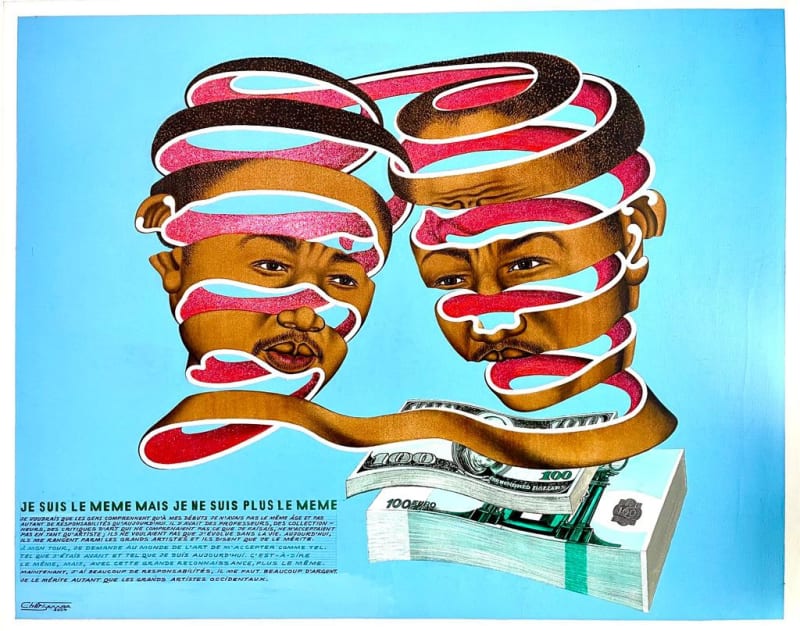Africam EXPLORO
The juxtaposition of tradition and contemporaneity is no longer sufficient to understand the multifaceted African art scene.
The Black Liquid Art Gallery, Friday, May 26, 2023 presents Africam EXPLORO, a reconnaissance involving eleven artists who have made the history of contemporary African art: Esther Mahlangu, Cheri Samba, Moke, Jean- Baptiste Ngnetchopa, Twins Seven Seven, Soly Cissè, Sanaa Gateja, Calixte Dakpogan, Jacques-Jean Efiaimbelo, George Lilanga, Pierre Bodo, and Frederic Bruly Bouabré.
The name of the project Africam EXPLORO, refers to the Latin locution that means "to make a reconnaissance in Africa", the artists in the exhibition represent the tradition and aesthetic influences of their country that with a temporal acceleration have in a few years merged their culture with the global one, giving us back works with a current visual impact, but impregnated with an Afrocentricity that is again influencing Western aesthetics.
One of the main challenges when it comes to contemporary African art is its vast and heterogeneous nature, encompassing a wide variety of forms, languages, and artists. As a result, it is not possible to analyze contemporary African art individually, but instead we can examine the different critical perspectives that have emerged over the years. Moving in a visually appealing direction Africam EXPLORO aims to highlight the international debate that has developed around this topic.
In an attempt to outline the current critical scene, the two opposing models of approach to contemporary African art will be explored. One view can be described as ‘neo-primitivist', which emphasizes traditional and authentic expressions of African art that conform to Western expectations and stereotypes. The other more 'conceptualist' view that seeks to deconstruct these stereotypes and expand the reach of African art within the global art tradition.
In recent decades, identities based on continental boundaries and geographical criteria have become obsolete, but identity and the question of belonging are still important to African artists and those in the diaspora who seek to balance dialogue with the international circuit and the culture of belonging. The juxtaposition of tradition and contemporaneity is no longer sufficient to understand the multifaceted African art scene. Therefore, it is necessary to reshape the image of Africa as perceived in the West, through the voices, including those of African critics, with an approach that considers the relationships between artist, production, audience and patrons as analytical categories.
Since the Africam EXPLORO exhibition cannot be exhaustive of contemporary African artistic diversity, it is only a pretext to begin to pose a reflection on a phenomenon that is taking on a major impact in contemporary international culture.



